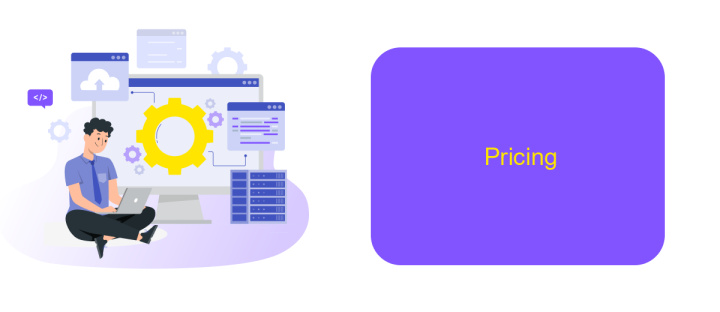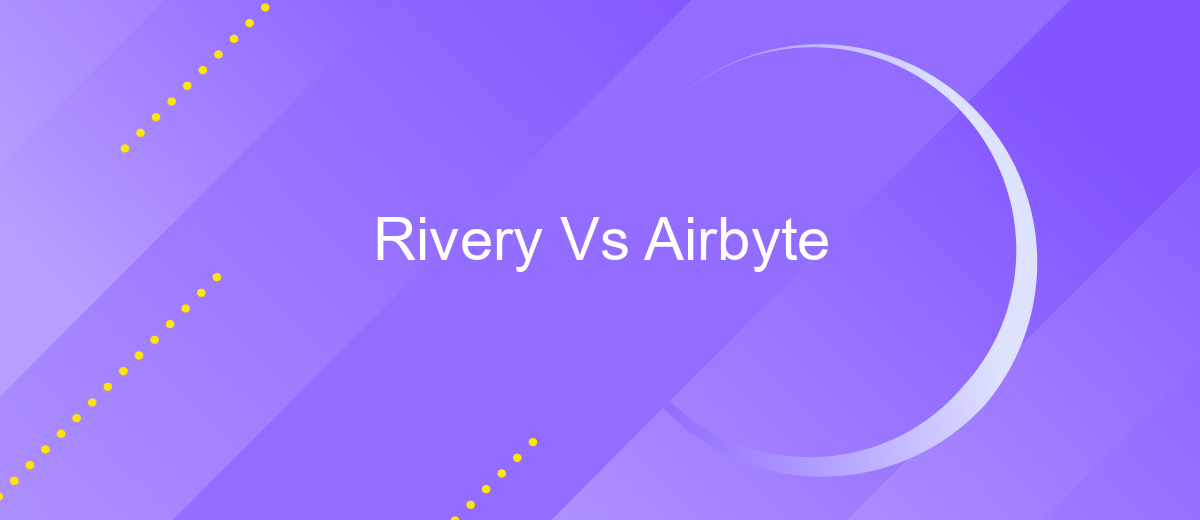Rivery Vs Airbyte
Choosing the right data integration tool is crucial for any organization aiming to streamline its data workflows. In this article, we compare Rivery and Airbyte, two popular solutions in the market. We'll delve into their features, ease of use, and overall performance to help you make an informed decision on which platform best suits your data integration needs.
Overview
Rivery and Airbyte are two prominent data integration platforms designed to streamline the process of connecting various data sources. Both tools offer unique features that cater to different business needs, making the choice between them dependent on specific requirements.
- Rivery: Known for its no-code interface, Rivery simplifies data integration with pre-built connectors and automated workflows.
- Airbyte: An open-source platform, Airbyte provides flexibility with customizable connectors and community-driven support.
Choosing the right tool depends on factors like ease of use, customization needs, and community support. For those looking for an easy setup without coding, Rivery might be the better choice. However, if you need more customization and are comfortable with open-source solutions, Airbyte could be more suitable. Additionally, services like ApiX-Drive can further enhance integration processes by offering seamless connectivity and automation, ensuring that your data flows smoothly across different platforms.
Key Features

Rivery offers a robust suite of features designed for seamless data integration and management. Its no-code interface allows users to easily create and manage data pipelines without requiring extensive technical expertise. Rivery's automated workflows and real-time data synchronization ensure that users always have access to the most current data. Additionally, Rivery supports a wide range of data sources and destinations, making it a versatile tool for businesses of all sizes. The platform also includes advanced data transformation capabilities, enabling users to clean, enrich, and manipulate data as needed.
Airbyte, on the other hand, is an open-source data integration platform that provides extensive customization options. Users can build their own connectors or modify existing ones to suit their specific needs. Airbyte's modular architecture allows for scalable and flexible data integration processes. The platform supports a growing library of pre-built connectors, making it easier to integrate various data sources. With its focus on transparency and community-driven development, Airbyte ensures that users have the tools they need to address complex data integration challenges. For those looking to simplify their integration setup, services like ApiX-Drive can further streamline the process by offering automated workflows and pre-configured connectors.
Use Cases

When choosing between Rivery and Airbyte, it's essential to consider specific use cases to determine which platform best fits your needs. Both tools offer robust data integration capabilities, but they excel in different scenarios.
- Data Migration: Rivery is particularly useful for large-scale data migrations due to its strong ETL capabilities and pre-built data connectors.
- Real-Time Data Integration: Airbyte excels in real-time data synchronization, making it ideal for businesses that need up-to-the-minute data updates.
- Custom Workflows: Rivery offers a flexible environment for creating custom data workflows, which is beneficial for organizations with complex data transformation needs.
- Open-Source Flexibility: Airbyte's open-source nature allows for extensive customization, making it suitable for companies that require tailored data solutions.
- Integration with Other Tools: Both platforms can be enhanced by using services like ApiX-Drive, which streamlines the integration process with various third-party applications.
Ultimately, the choice between Rivery and Airbyte will depend on your specific requirements and technical landscape. Assess your needs carefully to leverage the strengths of each platform effectively.
Pricing

When comparing the pricing models of Rivery and Airbyte, it's essential to consider the specific needs of your business. Rivery operates on a subscription-based pricing model, offering various plans to cater to different data integration requirements. Airbyte, on the other hand, follows an open-source model with a cloud offering that includes a free tier and usage-based pricing for additional features.
Rivery's subscription plans are designed to provide flexibility and scalability, making it easier for businesses to manage their data operations efficiently. Airbyte's open-source model allows for greater customization, but the cloud offering introduces costs based on the volume of data processed and the number of connectors used.
- Rivery: Subscription-based pricing with multiple plans
- Airbyte: Open-source with a free tier and usage-based cloud pricing
- ApiX-Drive: Pay-as-you-go model for seamless integrations
Choosing between Rivery and Airbyte depends on your budget, data integration needs, and preference for customization. Additionally, services like ApiX-Drive can complement either platform by offering a pay-as-you-go model, providing an efficient way to manage integrations without a long-term commitment.
Pros and Cons
Rivery offers a no-code approach to data integration, making it accessible for users without technical expertise. It provides a wide range of pre-built connectors and is highly scalable, which is ideal for growing businesses. However, the platform can be expensive for smaller companies, and its user interface might seem overwhelming to beginners. Additionally, some users report that customer support can be slow to respond.
Airbyte, on the other hand, is an open-source platform that allows for extensive customization and flexibility. It is cost-effective, especially for startups and small businesses, as it offers a free tier. The community-driven approach ensures continuous updates and improvements. Nevertheless, setting up Airbyte can be complex and may require technical knowledge, which could be a barrier for some users. For those looking for an easier setup process, services like ApiX-Drive can help streamline integration tasks, making it a valuable addition to Airbyte's ecosystem.
- Automate the work of an online store or landing
- Empower through integration
- Don't spend money on programmers and integrators
- Save time by automating routine tasks
FAQ
What are the main differences between Rivery and Airbyte?
Can both Rivery and Airbyte handle real-time data integration?
Which platform is more cost-effective for small to medium-sized businesses?
How easy is it to set up and maintain data pipelines with these platforms?
Are there alternative solutions for businesses looking to automate data integration without significant technical effort?
Apix-Drive will help optimize business processes, save you from a lot of routine tasks and unnecessary costs for automation, attracting additional specialists. Try setting up a free test connection with ApiX-Drive and see for yourself. Now you have to think about where to invest the freed time and money!


